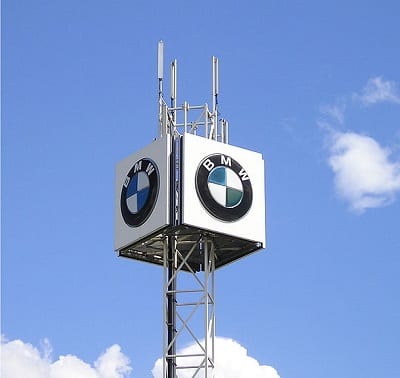Toyota scientists make a breakthrough that could benefit electric vehicles
May 16, 2016Scientists make a breakthrough in battery technology that could be good news for clean transportation
Scientists working with Toyota have made a significant breakthrough that could lead to better battery technology. The breakthrough may allow for the development of smaller, longer-lasting batteries, which would make use of magnesium-based electrolytes rather than those comprised of lithium. This breakthrough may be a major benefit for clean transportation, making electric vehicles more accommodating of consumer demands in the future. Scientists managed to discover the battery improvement while working on a more effective way to store hydrogen fuel.
Research team had been working on hydrogen fuel tanks
The scientists work for the Toyota Research Institute of North America. The researchers involved in the breakthrough were not associated with the organization’s hybrid or electric vehicle teams. Instead, these researchers were developing better materials for hydrogen fuel tanks in an effort to make these tanks more efficient. The breakthrough in battery technology solves a major issue that has been facing electric vehicles for some time.
Magnesium may replace lithium in batteries for electric vehicles
 Typically, lithium-ion batteries are used to power electric vehicles. The problem, however, is that lithium is unstable and can ignite when exposed to oxygen. This makes batteries somewhat dangerous, especially in the event of a car accident. While lithium-ion batteries are generally considered safe for use in transportation, researchers have been looking for ways to replace lithium in batteries. Toyota researchers have found that magnesium would be better suited for the electrolytes that batteries use.
Typically, lithium-ion batteries are used to power electric vehicles. The problem, however, is that lithium is unstable and can ignite when exposed to oxygen. This makes batteries somewhat dangerous, especially in the event of a car accident. While lithium-ion batteries are generally considered safe for use in transportation, researchers have been looking for ways to replace lithium in batteries. Toyota researchers have found that magnesium would be better suited for the electrolytes that batteries use.
Toyota is beginning to show more interest in battery technology
According to Toyota, the research team has finished their work on a non-corrosive, boron-based electrolyte system. This system could bring batteries into the next generation, making electric vehicles more efficient, smaller, and more capable of meeting the transportation needs of consumers. Better batteries will likely make electric vehicles more attractive to those interested in clean transportation, especially if these batteries can be charged faster than their contemporary counterparts. More research may need to be done before the electrolyte system can be considered commercially viable, but Toyota is, once again, beginning to show faith in battery technology.


 With over 15 years of reporting hydrogen news, we are your premier source for the latest updates and insights in hydrogen and renewable energy.
With over 15 years of reporting hydrogen news, we are your premier source for the latest updates and insights in hydrogen and renewable energy.